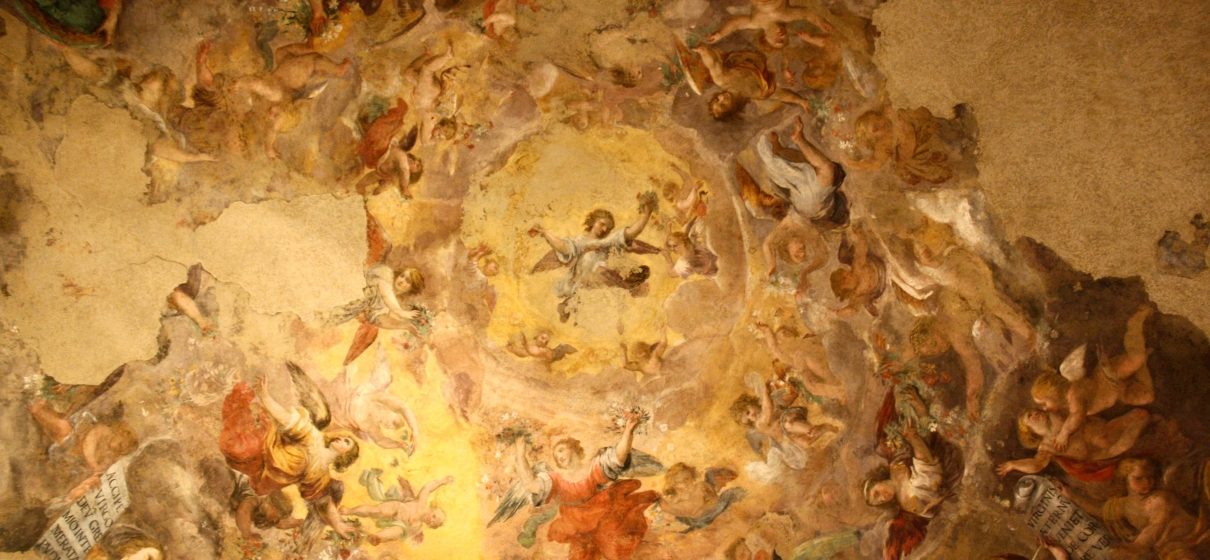New Identity, Same Broken World
2020 was difficult in nearly every way, full of turmoil, unrest, division, and fear. We all looked forward to the beginning of a new year, full of promise: long-awaited vaccines, the end of a contentious election cycle, and the return to some normalcy. It turns out, however, that 2021 wasn’t the answer to our pain and frustration. The brokenness of the world continues to be on full display, and it is tempting to respond with anger, fear, or even apathy.
A common refrain at Clear Creek Community Church is that our identity informs our activity. Our identity in Christ transforms us completely and informs how we live. 2 Corinthians 5:17 tells us, “if anyone is in Christ, he is a new creation. The old has passed away; behold, the new has come.” So, when the world feels chaotic, without clear answers or a straight path forward, what does it actually look like to live as a new creation? How can our identity as Christians inform our response to a cultural moment like last week (or year)? Let’s take a look at three identities of a follower of Jesus.
CITIZENS IN GOD’S KINGDOM
Jesus is the king of the world, the creator who was and is to come, who reigns now at the right hand of the Father. Above national ideology, personal comfort, or various tribes, we are first citizens of the kingdom of God. This kingdom is an upside-down kingdom in which the king died for his citizens and commands us to follow his model of obedient sacrifice and humble love. Our citizenship in the kingdom of God must inform our citizenship in our earthly kingdom. It might mean finding ourselves at odds with those in power or our own tribe, but our words must always be marked by generosity, benevolence, service, and compassion. It is what our king commands, and we must obey.
MEMBERS OF GOD’S FAMILY
Through Christ’s work on the cross, the Father has adopted us into his family. We can rest in the knowledge of God’s unconditional love and provision for his children, including the gift of being a part of a new family, the church. Who are your people? Are they your party? Tribe? Culture? Whatever else may divide us, we are first and foremost united in Christ and committed to serve one another.
Our brothers and sisters in Christ must be seen as family members that we love, rather than adversaries to defeat or problems to solve. God’s desire for the church is “that there may be no division in the body, but that the members may have the same care for one another. If one member suffers, all suffer together; if one member is honored, all rejoice together” (1 Corinthians 12:25-26). In all situations, our words and actions must be gracious, compassionate, and tender toward one another. We must commit to let go of animosity for the good of our family, for the honor of our faithful and gracious Father.
MISSIONARIES ON GOD’S MISSION
Jesus was sent to save us from sin and death, freeing us from our own sinfulness and forgiving our rebellion. He has saved us into his kingdom and family, and has sent us as missionaries to go and make disciples of all nations (Matthew 28:19,20). The spreading of the gospel message must be first and foremost in our priorities. What message are we proclaiming today: compassion and love, or political and cultural demands?
More than that, our message must always be centered in the good news that, out of love, God has sent his Son to rescue, redeem, and reconcile all people back to himself. As missionaries on God’s mission, our words and actions must serve as a winsome invitation to personally know the God of the universe. We are saved, and so we are sent.
The world continues to be mired in sin and destruction. While we pray for the chaos and suffering to lessen and trust that new and good things will come, we know that this world will remain broken until Christ returns. But, as followers of Jesus, everything is different for us and in us. Because of who God is and what he has done for us, we are each transformed into a new creation in Christ, freed from slavery to sin to walk in the light under the lordship of Jesus.
So, let us begin again with repentance, acknowledging our own brokenness, deceit, selfishness, and sin. Without repentance, we remain trapped in our desire to live according to our own standards and rules, attempting to be our own god in our own kingdom.
And then let us faithfully serve our King, love our brothers and sisters, and stay on mission to a world in desperate need of the hope of the gospel.








 Our Arts Team just released a new recording of Joy to the World!
Our Arts Team just released a new recording of Joy to the World!

